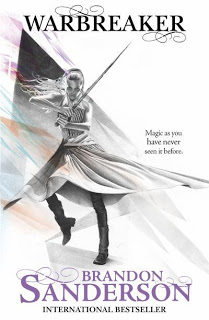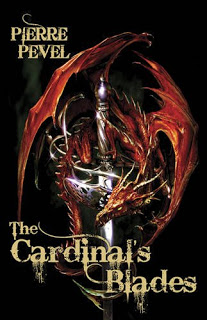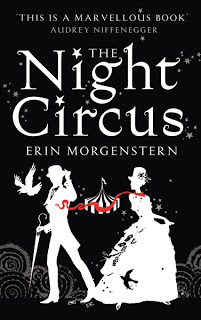Well, this is hardly going to be an objective review. There isn’t a single one of Brandon Sanderson’s books that I’ve read and not liked. All, umm… 4 of the ones I’ve read.
What he’s done this time is create yet another world out of thin air, and it’s glorious in its way. Each person has a Breath (which some people liken to a soul) which can be granted to others, or used to perform magic of a sort. The rich and powerful of the realm show this by having hundreds of Breaths, each one worth enough to feed a family for months.
Having enough Breaths makes you resistant to disease, illness, and even aging – as well as giving you the ability to read auras, see perfect tones of colour and Awaken items.
This is where we get to the magic. Awakeners can imbue items (anything from clothes to corpses) with Breath and a Command, which allows them to act on their behalf.
The book follows a pair of sisters from Idris, a remote kingdom where it is believed that a Breath is a person’s soul and hoarding them or using them to Awaken items are sins and heresies. The sisters (princesses of the realm) journey to Hallendren, rival kingdom, and home to Awakeners and the Returned – people who died and revived themselves somehow and are now considered to be gods by the Hallendren people.
There are some hints to the origins of the Returned, but nothing concrete.
It kind of all starts when the wrong sister gets sent to be the God-King’s wife. Their father, fearing war and wishing to protect his favourite daughter, sends his youngest daughter (Siri) instead to fulfil the slightly ambiguous contract he had with Hallendren. The elder daughter (Vivanna) follows, partially to rescue her sister and partially to give herself a purpose.
I found myself drawn into the world, and constantly wondering how things worked and who the key players in the book actually were. While I anticipated some of the twists, I didn’t catch them all, and that was a pleasant surprise. Enough of a surprise in fact, that while my work hours might be over, I’m still sitting at work writing this having just finished it half an hour ago.
A touch of Googling tells me that Warbreaker is a singleton book. I can understand this, and the story is finished as it stands, but I find myself terribly curious as to what happens after the book and exactly how the Manywar started. You get enough of the story through the book and I think actually telling the tale might cheapen it, but part of me still wants to know, just as part of me wants to see what happens with Vasher after the end of the book.
All in all, it’s an excellent book. It’s well written and I didn’t spot any grammar or spelling mistakes through it (which either means I was entranced by the story, or there weren’t any). No real reason for me to mention that, but I can be a bit of a grammar Dalek.
I thoroughly recommend this book, just as I recommend his Mistborn books (the original trilogy of which makes up the other three books of his I’ve read). Especially given I tore through it in three days.





